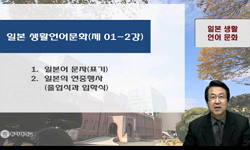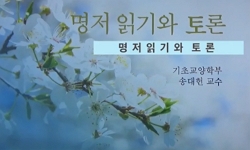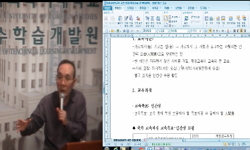현대 한국 사회는 전통적인 집단주의 문화에서 벗어나 개인주의 문화로 급격히 변화되고 있다. 그러나 동시대를 살아가는 다양한 연령층의 한국인들은 자신들이 익숙한 문화와 의사소통방...
http://chineseinput.net/에서 pinyin(병음)방식으로 중국어를 변환할 수 있습니다.
변환된 중국어를 복사하여 사용하시면 됩니다.
- 中文 을 입력하시려면 zhongwen을 입력하시고 space를누르시면됩니다.
- 北京 을 입력하시려면 beijing을 입력하시고 space를 누르시면 됩니다.
https://www.riss.kr/link?id=A107987850
- 저자
- 발행기관
- 학술지명
- 권호사항
-
발행연도
2021
-
작성언어
Korean
- 주제어
-
등재정보
KCI등재
-
자료형태
학술저널
-
수록면
455-480(26쪽)
-
KCI 피인용횟수
0
- DOI식별코드
- 제공처
- 소장기관
-
0
상세조회 -
0
다운로드
부가정보
국문 초록 (Abstract)
현대 한국 사회는 전통적인 집단주의 문화에서 벗어나 개인주의 문화로 급격히 변화되고 있다. 그러나 동시대를 살아가는 다양한 연령층의 한국인들은 자신들이 익숙한 문화와 의사소통방식을 고수하며 세대간 의사소통 갈등을 경험하고 있다. 본 연구에서는 20대에서 60대에 이르는 다양한 연령층의 한국인 1000명을 대상으로 개인의 문화적 자기관, 즉 문화성향과 의사소통능력을 측정하여 그 관계성과 특성을 살펴보고자 하였다. 개인의 문화적 성향은 Markus와 Kitayama(1991)의 문화적 자기관 이론을 바탕으로 제작된 상호독립적, 상호의존적 자기관 척도(Singelis, 1994)를 사용하여 측정하였고, 의사소통능력은 Rubin과 Martin(1994)의 대인 의사소통능력 척도(Interpersonal communication competence scale; ICCS)를 발전시켜 15개의 의사소통차원에서 포괄적 의사소통능력을 측정하는 허경호(2003)의 포괄적 대인 의사소통능력 척도를 사용하여 측정하였다. 연구 결과는 다음과 같다. 첫째, 연령이 증가함에 따라 상호의존적 자기관 점수가 상승하였으며, 특히 50대와 60대가 20, 30, 40대에 비하여 높은 상호의존적 자기관 점수를 보고하였다. 둘째, 개인의 상호의존적 자기관 점수와 상호독립적 자기관 점수의 차이값을 기반으로 전체 참가자를 상호의존적 자기관 우세집단과 상호독립적 자기관 우세집단으로 구분하여, 문화성향집단과 세대(20대/30대/40대/50대/60대)에 따른 차이를 의사소통 하위 요인별로 다변량분석을 통해 살펴보았을 때, 주장력과 지지에서 문화성향집단과 세대의 유의한 상호작용 효과가 관찰되었다. 이는 상호독립적 자기관 우세집단은 세대에 따른 주장력 점수에 큰 차이가 없지만, 상호의존적 자기관 우세집단은 연령이 낮을수록 주장력이 낮아지는 추세를 반영한다. 지지의 경우 상호독립적 자기관 우세집단은 연령에 따른 점수 차이가 미미하였으나, 상호의존적 자기관 우세집단에서는 세대에 따라 점수에 변동이 나타났다. 본 연구 결과는 현재 한국인들은 연령에 따라 주된 문화성향의 차이가 존재하며, 이는 다른 의사소통 특성과 능력으로 연결될 수 있음을 알려준다.
다국어 초록 (Multilingual Abstract)
The modern Korean society has been changing from the traditional collectivism culture to the individualism. However, Korean people in different age groups are likely stick to their familiar culture and communication styles, and experience communicatio...
The modern Korean society has been changing from the traditional collectivism culture to the individualism. However, Korean people in different age groups are likely stick to their familiar culture and communication styles, and experience communicational conflict between different age groups. In the current research, we explore the relationship between cultural self-construals and communication competences and communication characteristics of Korean in different age groups. Cultural self-construals of participants are measured by independent and interdependent self-construal scales (Singelis, 1994), which has been developed from the cultural self-construal theory of Markus and Kitayama(1991), while the communication competence is measured by Global Interpersonal Communication Competence scale(GICCs) which has been developed from the Rubin & Martin(1994)’s ICCs. The results were as follows. First, in the results, people in 50s and 60s show relatively high scores in interdependent self-construal than any other younger age groups. As the age increased, the interdependent self-construal score increased. In particular, those in their 50s and 60s reported higher interdependent self-construal scores compared to those in their 20s, 30s, and 40s. Second, based on the difference score between the individual"s interdependent self-construal and the independent self-construal, all participants were divided into an hight interdependent self-construal group and an high interdependent self-construal group. And then the effects of group and age on sub-factors in GICCs were analyzed by MANOVA. In the results from an additional analysis comparing the high interdependent self-construal group with the high independent self-construal group, the high independent self-construal group shows relatively higher assertiveness and expressiveness while the high interdependent group shows relatively lower score. The current results imply that there are differences in the cultural self-construals among Koreans in different age groups and these differences may result in different communication styles and competences.
목차 (Table of Contents)
- Ⅰ. 서론
- Ⅱ. 연구배경
- Ⅲ. 조사방법
- Ⅳ. 결과
- Ⅴ. 논의 및 결론
- Ⅰ. 서론
- Ⅱ. 연구배경
- Ⅲ. 조사방법
- Ⅳ. 결과
- Ⅴ. 논의 및 결론
- 참고문헌
- Abstract
참고문헌 (Reference)
1 양정은, "한국적 집단주의(우리성, we-ness)가 대인 커뮤니케이션에 미치는 영향에 대한 연구" 한국콘텐츠학회 19 (19): 1-14, 2019
2 한규석, "한국인의 선호가치 변화-수직적 집단주의에서 수평적 개인주의로" 13 (13): 293-310, 1999
3 나은영, "한국인의 가치관 변화 추이: 1979년,1998년,및 2010년의 조사 결과 비교" 한국사회및성격심리학회 24 (24): 63-93, 2010
4 권소영, "한국 대학생의 자기관과 감정표현불능증의 관계: 상호독립적 자기관 결핍에 따른 정서표현양가성 및 정서억제의 매개 효과" 한국문화및사회문제심리학회 25 (25): 101-118, 2019
5 허경호, "포괄적 대인 의사소통 능력 척도개발 및 타당성 검증" 한국언론학회 47 (47): 380-408, 2003
6 설진선, "직장 내 세대갈등 해결을 위한 사내 커뮤니케이션과 직장 내 괴롭힘 금지법의 역할은 무엇일까?: X⋅Y세대 직장인들과의 질적 인터뷰를 통한 탐색적 연구" 사회과학연구원 59 (59): 251-290, 2020
7 현경자, "중도장애, 이혼과 같은 생애위기 경험자의 자기해석 복합성과 심리적 안녕-관점의 다각화, 자기수용, 자기조절의 매개효과-" 한국사회복지학회 62 (62): 193-222, 2010
8 김혜진, "조직구성원의 문화성향에 따른 조직시민행동의 차이: 조직지원인식의 조절효과와 매개효과" 한국산업및조직심리학회 25 (25): 265-297, 2012
9 조윤형, "조직구성원들의 가치성향이 조직시민행동에 미치는 영향 - 조직신뢰의 매개효과 -" 한국인적자원관리학회 17 (17): 403-430, 2010
10 어유경, "정서억제가 친밀한 대인관계 만족도에 미치는 영향: 자기구성개념의 조절효과" 한국상담심리학회 30 (30): 121-141, 2018
1 양정은, "한국적 집단주의(우리성, we-ness)가 대인 커뮤니케이션에 미치는 영향에 대한 연구" 한국콘텐츠학회 19 (19): 1-14, 2019
2 한규석, "한국인의 선호가치 변화-수직적 집단주의에서 수평적 개인주의로" 13 (13): 293-310, 1999
3 나은영, "한국인의 가치관 변화 추이: 1979년,1998년,및 2010년의 조사 결과 비교" 한국사회및성격심리학회 24 (24): 63-93, 2010
4 권소영, "한국 대학생의 자기관과 감정표현불능증의 관계: 상호독립적 자기관 결핍에 따른 정서표현양가성 및 정서억제의 매개 효과" 한국문화및사회문제심리학회 25 (25): 101-118, 2019
5 허경호, "포괄적 대인 의사소통 능력 척도개발 및 타당성 검증" 한국언론학회 47 (47): 380-408, 2003
6 설진선, "직장 내 세대갈등 해결을 위한 사내 커뮤니케이션과 직장 내 괴롭힘 금지법의 역할은 무엇일까?: X⋅Y세대 직장인들과의 질적 인터뷰를 통한 탐색적 연구" 사회과학연구원 59 (59): 251-290, 2020
7 현경자, "중도장애, 이혼과 같은 생애위기 경험자의 자기해석 복합성과 심리적 안녕-관점의 다각화, 자기수용, 자기조절의 매개효과-" 한국사회복지학회 62 (62): 193-222, 2010
8 김혜진, "조직구성원의 문화성향에 따른 조직시민행동의 차이: 조직지원인식의 조절효과와 매개효과" 한국산업및조직심리학회 25 (25): 265-297, 2012
9 조윤형, "조직구성원들의 가치성향이 조직시민행동에 미치는 영향 - 조직신뢰의 매개효과 -" 한국인적자원관리학회 17 (17): 403-430, 2010
10 어유경, "정서억제가 친밀한 대인관계 만족도에 미치는 영향: 자기구성개념의 조절효과" 한국상담심리학회 30 (30): 121-141, 2018
11 어유경, "정서억제가 신체증상에 미치는 영향: 자기구성개념의 조절효과" 한국건강심리학회 24 (24): 631-646, 2019
12 조은영, "자아해석과 주관적 안녕감 및 우울간의 관계: 인지적 유연성, 자기개념 명확성의 매개효과와 자기복잡성의 조절효과" 한국심리학회 31 (31): 493-519, 2012
13 안신능, "자기 개념에 따른 자기 불일치와 삶의 만족도의 인과적 관계" 연세대학교 대학원 2006
14 장수지, "연령집단 별 문화성향과 공동체의식 간 관계" 한국사회및성격심리학회 28 (28): 1-24, 2014
15 차혜경, "대학생의 가치지향성에 대한 주관성 연구" 한국웰니스학회 13 (13): 165-177, 2018
16 박선영, "대학생들의 자기관과 주관적 안녕감에 대한 연구: 서울과 대구 지역을 중심으로" 한국청소년학회 12 (12): 71-, 2005
17 McCroskey, J. C., "Willingness to communicate : Differing cultural perspectives" 56 (56): 72-77, 1990
18 Cross, S. E., "The what, how, why, and where of self-construal" 15 (15): 142-179, 2011
19 Singelis, T. M., "The measurement of independent and interdependent self-construals" 20 (20): 580-591, 1994
20 Kim, Y., "The influence of Chemyon on facework and conflict styles : Searching for the Korean face and its impact" 37 (37): 60-67, 2011
21 Infante, D. A., "Subordinates' satisfaction and perceptions of superiors' compliance-gaining tactics, argumentativeness, verbal aggressiveness, and style" 6 (6): 307-326, 1993
22 Rubin, R. B., "Speech communication: Essays to commemorate the 75th anniversary of the Speech Communication Association" Southern Illinois University Press 94-129, 1990
23 Oyserman, D., "Rethinking individualism and collectivism : Evaluation of theoretical assumptions and meta-analyses" 128 (128): 3-72, 2002
24 McCroskey, J. C., "Reliability and validity of the willingness to communicate scale" 40 (40): 16-25, 1992
25 Richmond, V. P., "Reliability and separation of factors on the assertivenessresponsiveness measure" 67 (67): 449-450, 1990
26 Cross, S. E., "Models of the self : Self-construals and gender" 122 (122): 5-37, 1997
27 Adler, R. B., "Looking out, Looking in" Cengage Learning 2016
28 Lee, Z. N., "Korean culture and sense of shame" 36 (36): 181-194, 1999
29 Klopf, D. W., "Korean communication practices : Comparative research" 32 (32): 93-99, 1992
30 Barbato, C. A., "Interpersonal communication motives and the life position of elders" 19 : 516-531, 1992
31 Kim, M. S., "Independent and interdependent construals of self : Explaining cultural patterns of interpersonal communication in multi-cultural organizational settings" 43 (43): 20-38, 1995
32 김영욱, "Impact of Chemyeon on Koreans’ Verbal Aggressiveness and Argumentativeness" 한국학중앙연구원 53 (53): 48-77, 2013
33 Kim, D., "High-versus low-Context culture : A comparison of Chinese, Korean, and American cultures" 15 (15): 507-521, 1998
34 Bettencourt, B., "Gender differences in aggression as a function of provocation : A meta-analysis" 119 (119): 422-447, 1996
35 McCroskey, J. C., "Fundamentals of human communication : An interpersonal perspective" Waveland Press 1996
36 Fukuyama, M. A., "Dimensions of assertiveness in an Asian-American student population" 30 (30): 429-432, 1983
37 Rubin, R. B., "Development of a measure of interpersonal communication competence" 11 (11): 33-44, 1994
38 Markus, H. R., "Cultures and selves : A cycle of mutual constitution" 5 (5): 420-430, 2010
39 Markus, H. R., "Culture and the self : Implications for cognition, emotion, and motivation" 98 (98): 224-253, 1991
40 Hofstede, G., "Culture and organizations" 10 (10): 15-41, 1980
41 Thomas, J., "Contexting Koreans : Does the high/low model work" 61 (61): 9-22, 1998
42 Goldstein, S. B., "Construction and validation of a conflict communication scale 1" 29 (29): 1803-1832, 1999
43 Rubin, R. B., "Conceptualizing communication competence: Directions for research and instruction" 1983
44 Zhang, Y., "Comparison of apprehension about communication in China and the United States" 82 : 1168-1170, 1996
45 Park, M. S., "Communication practices in Korea" 40 (40): 398-404, 1992
46 Pryor, B., "Communication apprehension and cultural context : A comparison of communication apprehension in Japanese and American students" 7 (7): 247-252, 2005
47 Richmond, V. P., "Communication : Apprehension, avoidance, and effectiveness" Allyn & Bacon 1998
48 Park, M. S., "Characteristics of Korean communication" 18 : 33-38, 1992
49 Shim, T. Y. J., "Changing Korea: Understanding culture and communication (Vol. 10)" Peter Lang 2008
50 Yamada, A. M., "Biculturalism and self-construal" 23 (23): 697-709, 1999
51 Hall, E. T., "Beyond culture" Anchor Books/Doubleday 1976
52 Jenkins, G. D., "Argumentativeness in Korean and American college students: A comparison" 1991
53 Triandis, H. C., "Applied cross-cultural psychology" SAGE Publications 34-55, 1990
54 Sallinen-Kuparinen, A., "An analysis of social style among disparate cultures" 1991
55 Triandis, H. C., "Allocentric versus idiocentric tendencies : Convergent and discriminant validation" 19 (19): 395-415, 1985
56 Morisaki, S., "A study of interpersonal communication competence in Japan and the United States" University of Kentucky 1997
57 Thompson, C. A., "A comparison of social style between Japanese and Americans" 8 (8): 165-172, 1991
동일학술지(권/호) 다른 논문
-
- 강원대학교 사회과학연구원
- 조한승(HanSeung Cho)
- 2021
- KCI등재
-
- 강원대학교 사회과학연구원
- 이연주(Lee Yeon-Ju)
- 2021
- KCI등재
-
조직 내 정치인식이 조직성과 인식에 미치는 영향: 태움의 매개효과를 중심으로
- 강원대학교 사회과학연구원
- 정종원(Jongone Cheong)
- 2021
- KCI등재
-
대학생의 거부민감성과 우울의 관계: 자기개념 명확성과 자기침묵의 이중매개효과
- 강원대학교 사회과학연구원
- 박은하(Eun Ha Park)
- 2021
- KCI등재
분석정보
인용정보 인용지수 설명보기
학술지 이력
| 연월일 | 이력구분 | 이력상세 | 등재구분 |
|---|---|---|---|
| 2027 | 평가예정 | 재인증평가 신청대상 (재인증) | |
| 2021-01-01 | 평가 | 등재학술지 유지 (재인증) |  |
| 2018-01-01 | 평가 | 등재학술지 유지 (등재유지) |  |
| 2015-01-01 | 평가 | 등재학술지 선정 (계속평가) |  |
| 2013-01-01 | 평가 | 등재후보 1차 FAIL (등재후보1차) |  |
| 2011-01-01 | 평가 | 등재후보학술지 선정 (신규평가) |  |
| 2009-06-02 | 학회명변경 | 한글명 : 사회과학연구소 -> 사회과학연구원영문명 : Institute of Social Sciences -> Institute of Social Science |
학술지 인용정보
| 기준연도 | WOS-KCI 통합IF(2년) | KCIF(2년) | KCIF(3년) |
|---|---|---|---|
| 2016 | 1.31 | 1.31 | 1.29 |
| KCIF(4년) | KCIF(5년) | 중심성지수(3년) | 즉시성지수 |
| 1.19 | 1.23 | 1.772 | 0.04 |





 KCI
KCI DBpia
DBpia






